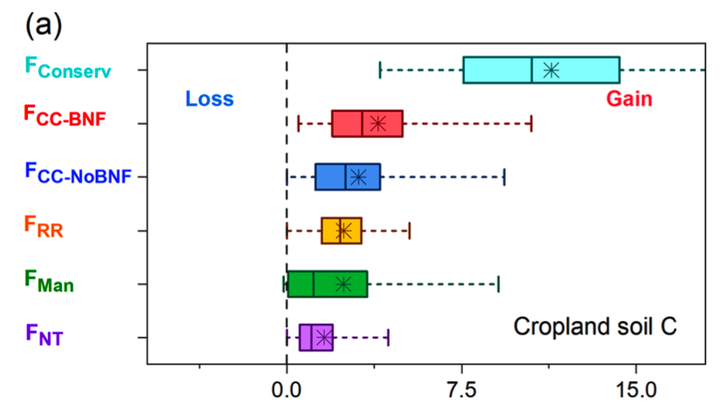Assessing the impacts of agricultural managements on soil carbon stocks, nitrogen loss, and crop production – a modelling study in eastern Africa

Abstract
Improved agricultural management plays a vital role in protecting soils from degradation in eastern Africa. Changing practices such as reducing tillage, fertilizer use, or cover crops are expected to enhance soil organic carbon (SOC) storage, with climate change mitigation co-benefits, while increasing crop production. However, the quantification of cropland management effects on agricultural ecosystems remains inadequate in this region. Here, we explored seven management practices and their potential effects on soil carbon (C) pools, nitrogen (N) losses, and crop yields under different climate scenarios, using the dynamic vegetation model LPJ-GUESS. The model performance is evaluated against observations from two long-term maize field trials in western Kenya and reported estimates from published sources. LPJ-GUESS generally produces soil C stocks and maize productivity comparable with measurements and mostly captures the SOC decline under some management practices that is observed in the field experiments. We found that for large parts of Kenya and Ethiopia, an integrated conservation agriculture practice (no-tillage, residue and manure application, and cover crops) increases SOC levels in the long term (+11 % on average), accompanied by increased crop yields (+22 %) in comparison to the conventional management. Planting nitrogen-fixing cover crops in our simulations is also identified as a promising individual practice in eastern Africa to increase soil C storage (+4 %) and crop production (+18%), with low environmental cost of N losses (+24 %). These management impacts are also sustained in simulations of three future climate pathways. This study highlights the possibilities of conservation agriculture when targeting long-term environmental sustainability and food security in crop ecosystems, particularly for those with poor soil conditions in tropical climates.